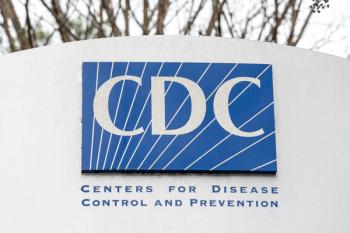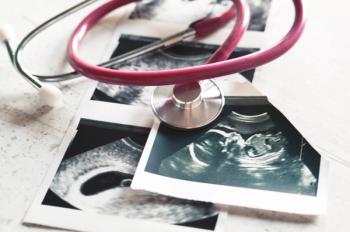
Following the Supreme Court’s decision to retain mifepristone access in June 2024, health care providers have spoken out about the need to fight for reproductive health care protections on a national and local level.

Following the Supreme Court’s decision to retain mifepristone access in June 2024, health care providers have spoken out about the need to fight for reproductive health care protections on a national and local level.

In a recent study, older women with type 2 diabetes had a higher bone mineral density but reduced physical function, linking the reduction in physical function to increased fracture risk in this population.

A recent study found that women with a shorter reproductive lifespan had increased odds of multimorbidity compared to those with a longer reproductive lifespan, indicating a need to assess reproductive factors to determine high-risk patients.

A recent study found that 37% of women do not recognize postmenopausal bleeding as an early symptom of endometrial cancer, indicating a lack of knowledge among patients and providers.

Review some of the top stories from the Contemporary OB/GYN website over the last week, and catch up on anything you may have missed.

A recent study reported an increase in cervical cancer screening rates among people living with HIV when offering a directed initiative alongside standard care, from 54% to 75%.

A study presented at the Infectious Disease Society for Obstetrics and Gynecology 2024 Annual Meeting found an increase of 4 days between diagnosis and treatment among pregnant patients with congenital syphilis vs those without congenital syphilis.

The US SPR has been updated to help clinicians address specific issues that may arise in patients using certain contraceptive methods.

A recent study highlights how a lack of reliable transportation significantly reduces influenza vaccination rates among pregnant individuals, underscoring the need for improved prenatal care access.

A study presented at the Infectious Disease Society for Obstetrics and Gynecology 2024 Annual Meeting highlights the importance of affordability and convenience in boosting STI test uptake among adolescents and young adults.

A study discussed by Tabby Khan, MD. MPH, reveals low rates of low-dose aspirin use among high-risk preeclampsia patients, highlighting the need for increased clinician awareness and better insurance coverage to improve maternal and infant health outcomes.

A recent study found higher levels of moral distress among clinicians practicing in states with strict abortion restrictions following the Supreme Court's Dobbs decision.

Review some of the top stories from the Contemporary OB/GYN website over the last week, and catch up on anything you may have missed.

A recent study found that women with preeclampsia during pregnancy face a higher risk of developing vascular dementia, but additional data was needed for other forms of dementia.

Despite guidelines, a study reveals a significant gap in the prescription of low-dose aspirin to pregnant women at high risk of preeclampsia, highlighting an urgent need for improved adherence and monitoring.

Bayer has submitted a New Drug Application for elinzanetant, following positive results from the OASIS studies, showing significant safety and efficacy in treating moderate-to-severe vasomotor symptoms in menopausal women.

A study found that both synthetic and nonsynthetic slings show similar success rates for treating stress urinary incontinence in women, with synthetic slings demonstrating improved operative outcomes and reduced complications.

Following the Supreme Court's Dobbs decision, rates of self-managed abortions have risen significantly, especially among marginalized communities, highlighting growing barriers to accessing legal abortion care.

Virtual Incision Corporation has announced the successful performance of the first benign hysterectomy using their miniaturized robotic-assisted surgery device, MIRA, in a clinical trial assessing its safety and efficacy.

A recent study reveals a direct association between higher maternal body mass index and the risk of sudden unexpected infant death, underscoring the need for further research into the causal mechanisms.

A recent study reveals that children born to mothers with hypertensive disorders during pregnancy are significantly more likely to develop strabismus.

A recent study highlights the improved outcomes yet elevated risks associated with gestational carrier pregnancies compared to general pregnancies.

Kristyn Brandi, MD, MPH, FACOG, discusses the Supreme Court's decision to maintain mifepristone availability and its potential impact on future women's health cases.

Review some of the top stories from the Contemporary OB/GYN website over the last week, and catch up on anything you may have missed.

These results indicated a significant reduction of CPP from 12 weeks of ZY5301 treatment. Investigators recommended a ZY5301 600 mg/d dose be investigated in a phase 3 trial.

A recent study reveals that while children exposed to maternal substance use face higher hospital costs up to age 20 years, out-of-home care significantly mitigates this financial burden.

Femlyv, containing norethindrone acetate and ethinyl estradiol, offers a new oral contraceptive option for individuals with swallowing difficulties, expanding access and convenience.

Reunion Neuroscience Inc. initiates phase 2 trial of RE104, a novel short-duration psychedelic treatment for postpartum depression, aiming to provide rapid and effective relief for affected mothers.

A recent study found that women undergoing uterine artery embolization during their first delivery face significantly higher risks of adverse prenatal outcomes in subsequent pregnancies.

A recent study reveals that unexpected red blood cell antibodies are present in 1.85% of pregnant women, highlighting the need for potential interventions to manage fetal anemia.